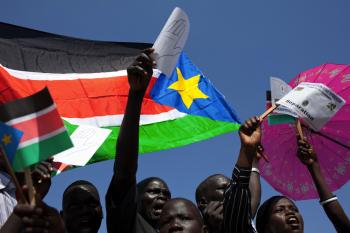Carter Upbeat Ahead of Sudan Vote (NTD Television)
Sudan suffered 22 years of civil war caused by cultural, religious, and social differences. It ended in 2005 with the signing of a Comprehensive Peace Agreement (CPA) between the major ruling political parties in the country: the National Congress Party in the north and the Sudan People’s Liberation Movement in the south. Sunday’s referendum is the last step in fulfilling the agreement.
Voting will take place Jan. 9 to 15 for the 3.9 million registered voters from Southern Sudan, and approximately 200,000 will vote from the north or overseas.
“The aim of the referendum and of the [south’s] secession is exactly for these conflicts to stop. On Jan. 9 people will decide once and for all what they want to do with their own country, what government they want, and by doing so they will put an end to the source of all conflicts,” says Dr. Francis G. Nazario, head of the Liaison Office of the Government of Southern Sudan (GoSS) in Brussels.
According to Nazario, Southern Sudan has wanted independence since the country was established in 1956 because Southerners have always felt excluded by the north.







